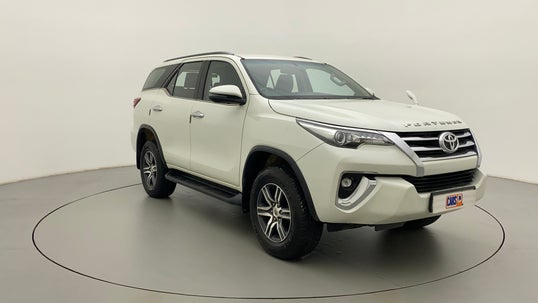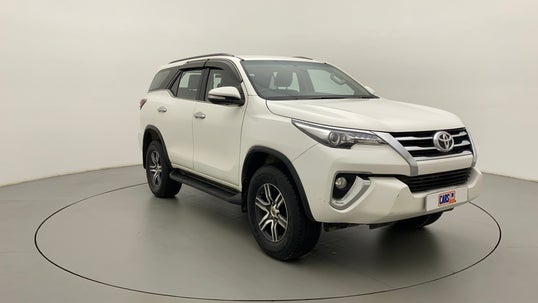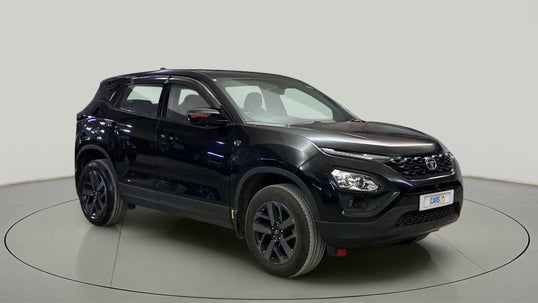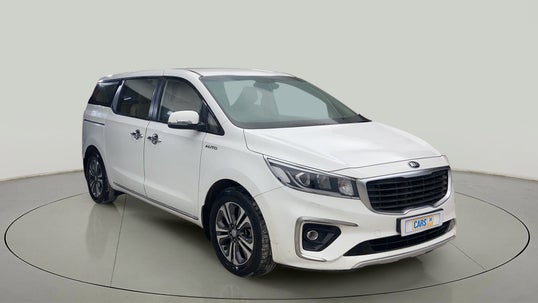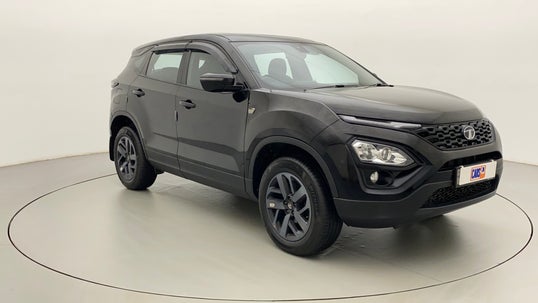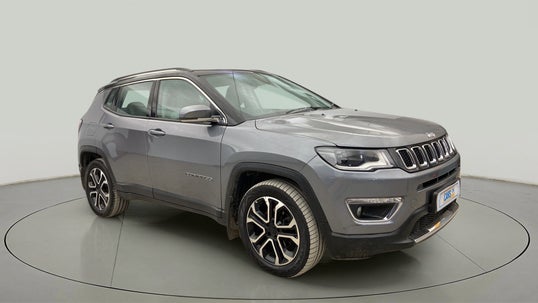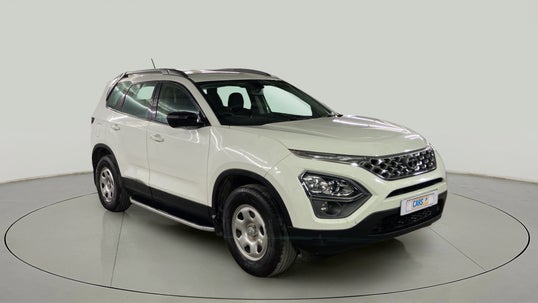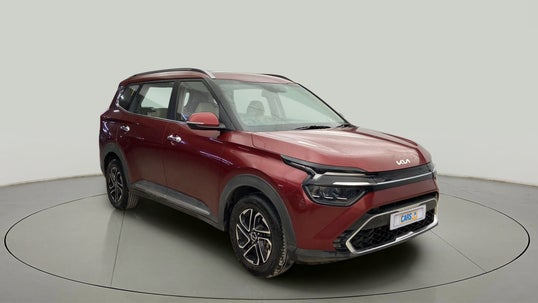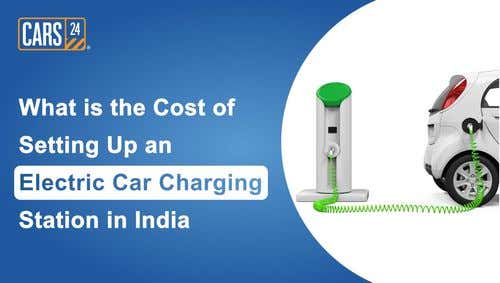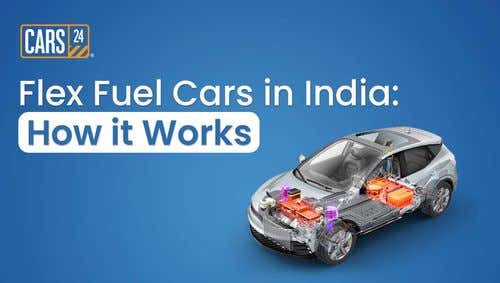Hybrid Car Vs Electric Car : Benefits, Working & Types Explained

Updated on: 30th August, 2023 IST
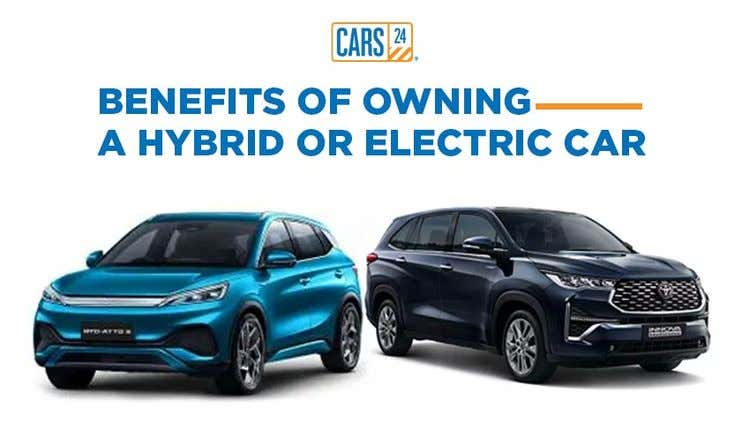
In the age of technological marvels and environmental consciousness, the automotive industry has witnessed a remarkable revolution. A new breed of vehicles has emerged, bringing together elegance, efficiency, and sustainability in an unparalleled cocktail of engineering brilliance. Welcome to the world of hybrid and electric cars—where futuristic innovation intertwines with responsible motoring
Owning a hybrid or electric car is akin to embarking on a journey where every mile travelled signifies a remarkable contribution to a cleaner, greener tomorrow. The benefits of hybrid cars and the benefits of electric cars stretch far beyond the conventional boundaries of fuel economy and eco-friendliness. These automobiles are like ballet dancers, seamlessly harmonising between two worlds—the electric powertrain, whispering the sweet lullaby of renewable energy, and the conventional engine, ever-ready to unleash its power on demand.
As we delve deeper into the many advantages of owning a hybrid or electric car, we unravel a world of benefits that transcend mere transportation. Join us on this exhilarating journey as we explore the enchanting world of sustainable motoring.
Table of Contents
- The Best of Both Worlds: Unlocking the Benefits of Hybrid Cars
- How Do Hybrid Cars Work?
- Benefits of Owning a Hybrid Car and Is it Worth Investing in One?
- Which One is Better: an HEV or PHEV?
- Silent Powerhouses: Why Electric Cars are the Future of Transportation
- How Do Electric Cars Work?
- The Bottom Line
- FAQs
The Best of Both Worlds: Unlocking the Benefits of Hybrid Cars
A hybrid car, in its essence, is a technological masterpiece that combines the best of both worlds—the conventional internal combustion engine (ICE) and an electric motor. This automotive marvel seamlessly switches between these two power sources, optimising fuel consumption and reducing emissions. Hybrid cars come in various forms, including hybrid electric vehicles (HEVs) and plug-in hybrid electric vehicles (PHEVs), each with its own set of advantages.
How Do Hybrid Cars Work?
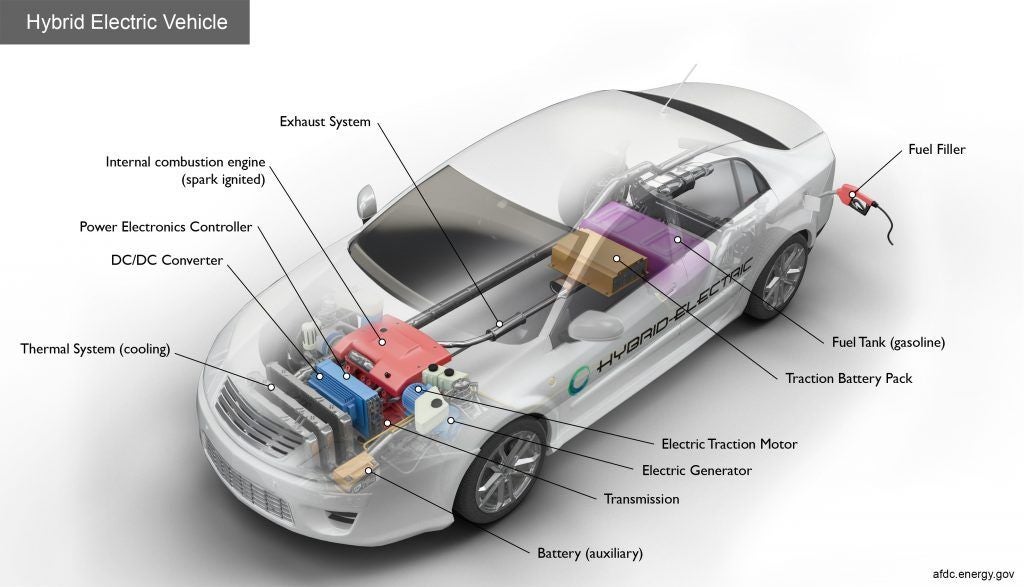
Hybrid cars operate on a sophisticated system that cleverly manages the utilisation of their dual power sources. This system manages the seamless transition between the engine and the electric motor, ensuring optimal efficiency and reducing fuel consumption. Here, you can take a quick detour and learn more about the benefits, working, and types of hybrid cars.
The key components of a hybrid car include:
- Internal Combustion Engine (ICE)
The gasoline engine provides power and generates electricity to charge the battery.
- Electric Motor
The electric motor works in tandem with the engine, providing additional power during acceleration and running solely on electricity in certain situations.
- Battery Pack
Hybrid cars feature a high-voltage battery pack that stores electricity generated by regenerative braking or from the engine. This stored energy powers the electric motor.
- Regenerative Braking
When the car decelerates or brakes, the electric motor functions as a generator, converting the kinetic energy into electricity and storing it in the battery.
Benefits of Owning a Hybrid Car and Is it Worth Investing in One?
Owning a hybrid car is beneficial in multiple ways. Not only do hybrid cars offer exceptional fuel efficiency, saving you money at the pump, but they also significantly reduce emissions, contributing to a greener and healthier environment. With government incentives and subsidies available, owning a hybrid becomes even more financially appealing.
Additionally, the seamless integration of the engine and electric motor provides a smooth and enjoyable driving experience. Hybrid cars are a testament to the possibilities of sustainable transportation, allowing drivers to make a positive impact on the planet without compromising on performance or convenience.
Here are some compelling advantages:
- Fuel Efficiency
Hybrid cars are renowned for their excellent fuel efficiency. By combining the power of the engine and electric motor, they achieve higher mileage and significantly reduce trips to the petrol pump.
- Lower Emissions
Hybrid cars produce fewer emissions compared to conventional vehicles. The electric motor’s assistance helps reduce carbon dioxide (CO2) and other harmful pollutants, contributing to cleaner air and a greener environment.
- Reduced Running Costs
Due to their superior fuel efficiency, hybrid cars can save you money in the long run. With lower fuel consumption, you’ll spend less on petrol or diesel, resulting in reduced running costs.
- Regenerative Braking
Hybrid cars employ regenerative braking technology, which converts kinetic energy into electricity during braking. This energy is then stored in the battery for later use, further enhancing efficiency and reducing wear on the brake pads.
- Enhanced Driving Experience
Hybrid cars offer a smooth and quiet driving experience. The electric motor’s instant torque provides quick acceleration, while the seamless transition between power sources ensures a refined ride.
- Government Incentives
In many countries, including India, there are government incentives and subsidies for owning hybrid cars. These incentives can include tax benefits, reduced registration fees, or special parking privileges, making owning a hybrid car even more appealing.
Which One is Better: an HEV or PHEV?
Both HEVs and PHEVs offer remarkable benefits over traditional internal combustion engine vehicles. HEVs provide a balance between electric and gasoline power, while PHEVs offer the added advantage of external charging and extended electric range. Whether you choose an HEV or a PHEV, rest assured that both options contribute to a greener future, delivering exceptional fuel economy, reduced emissions, and an overall satisfying driving experience.
The choice between them depends on your specific needs, driving patterns, and access to charging infrastructure. The choice between a hybrid electric vehicle (HEV) and a plug-in hybrid electric vehicle (PHEV) depends on individual needs and usage patterns.
Here’s a brief comparison:
- HEV
HEVs operate on a combination of an internal combustion engine and an electric motor. They don’t require external charging and can self-recharge through regenerative braking. HEVs are suitable for those who have limited access to charging infrastructure and primarily drive shorter distances.
- PHEV
PHEVs also feature an internal combustion engine and an electric motor but with a larger battery capacity. PHEVs can be charged externally through a power outlet, offering an extended electric-only driving range. PHEVs are ideal for those who have access to charging stations and often undertake longer commutes, as they provide the flexibility of electric driving while still offering the convenience of a gasoline engine for longer trips.
Do Plug-in Hybrids Have the Ability to Charge While Driving?
Plug-in hybrids (PHEVs) possess a distinct advantage over traditional hybrids as they offer the ability to charge their batteries while driving, thanks to a technology called regenerative braking. Here’s how it works:
- Regenerative Braking
PHEVs are equipped with regenerative braking systems that convert kinetic energy generated during braking or deceleration into electrical energy. This energy is then used to charge the battery.
- Charging While Driving
As you apply the brakes or lift your foot off the accelerator, the electric motor switches into generator mode. It harnesses the energy from the vehicle’s motion and converts it into electricity, which is then sent to the battery for storage.
- Enhanced Electric Range
By capturing energy that would otherwise be lost as heat during braking, PHEVs can recharge their batteries partially or fully while on the move. This feature extends the electric range of the vehicle, allowing for more electric-only driving and reducing the reliance on the internal combustion engine.
- Increased Efficiency
The ability to charge while driving enhances the overall efficiency of PHEVs. It maximises the utilisation of electricity and reduces the need for frequent charging from external power sources.
However, it’s important to note that the extent to which a PHEV can charge while driving depends on conditions such as traffic density and the frequency of braking events. Additionally, PHEVs still require external charging to fully charge their batteries for maximum electric range.
In summary, plug-in hybrids have the unique ability to charge their batteries while driving through regenerative braking. This feature enhances the electric range, improves efficiency, and reduces reliance on the internal combustion engine. While not a replacement for external charging, the ability to charge while driving contributes to the overall eco-friendliness and fuel efficiency of PHEVs.
List of Top 5 Hybrid Cars in India
- Lexus NX
- Lexus ES
- Lexus LS
- Lexus RX
- Volvo XC90
Silent Powerhouses: Why Electric Cars are the Future of Transportation
An electric car, also known as an electric vehicle (EV), is a cutting-edge automobile that runs entirely on electricity. Unlike conventional cars that rely on internal combustion engines, electric cars are powered by one or more electric motors, drawing energy from rechargeable batteries.
Electric cars come in various forms, including battery electric vehicles (BEVs) and plug-in hybrid electric vehicles (PHEVs), each offering unique advantages in terms of range and charging capabilities.
How Do Electric Cars Work?
Once you get behind the wheel of an electric car and you can feel the therapeutic rhythm of clean and dynamic energy coursing through your veins. The hum of the electric motor, the smooth acceleration, the instant torque—it all feels like magic. It’s as if you’re driving a machine that’s come to life, a creature that’s been awakened from a long slumber.
Electric cars operate through a sophisticated system that harnesses the power of electricity. Click here to discover the inner workings of electric cars as we provide a comprehensive explanation of how they work. For now, here’s a quick look at some of the key components of an electric car:
- Electric Motor
Electric cars utilise one or more electric motors to generate power and propel the vehicle. These motors deliver instant torque, providing quick acceleration and a responsive driving experience.
- Battery Pack
Electric cars are equipped with high-capacity rechargeable batteries, typically lithium-ion, that store the electrical energy needed to power the vehicle. The size and capacity of the battery pack determine the car’s range and performance.
- Charging System
Electric cars can be charged through various methods, including home charging stations, public charging points, or fast-charging networks. These systems convert electricity from the grid into a form compatible with the car’s battery.
- Regenerative Braking
Electric cars employ regenerative braking technology, which converts the kinetic energy produced during braking or deceleration into electricity. This energy is then used to recharge the battery, enhancing efficiency and extending the car’s range.
Benefits of Electric Cars and Is it Worth Investing in One?
The benefits of investing in an electric car range from environmental impact and cost savings, to improved energy efficiency and technological advancements. With increased government support and a growing charging infrastructure, electric cars are poised to revolutionise the way we drive, offering a greener and more sustainable transportation option for Indian roads.
Owning an electric car offers a wide range of benefits that go beyond environmental friendliness and make them a worthy investment. Here are some key advantages:
- Environmental Impact
Electric cars produce zero tailpipe emissions, reducing air pollution and greenhouse gas emissions. By driving an electric car, you contribute to cleaner air, a healthier environment, and combating climate change.
- Lower Operating Costs
Electric cars are generally more cost-effective to operate compared to traditional petrol or diesel vehicles. Charging an electric car is often cheaper than refuelling with petrol, resulting in significant savings on fuel costs. Moreover, electric cars require less maintenance due to fewer moving parts and less wear and tear on components like brakes and engine oil.
- Energy Efficiency
Electric cars have higher energy efficiency compared to internal combustion engine vehicles. Electric motors are inherently more efficient at converting electrical energy into mechanical power, resulting in better energy utilisation and longer range per charge.
- Government Incentives
Many countries, including India, provide various incentives and subsidies for electric car owners. These incentives can include tax benefits, reduced registration fees, and financial incentives for installing home charging stations.
- Smooth and Silent Operation
Electric cars offer a quiet and refined driving experience. With no engine noise, the cabin remains peaceful, allowing for a serene journey. Additionally, electric motors provide instant torque, delivering swift acceleration and responsive performance on the road.
- Technological Advancements
Electric cars represent the forefront of automotive technology, with continuous advancements in battery technology, range, and charging infrastructure. By owning an electric car, you become a part of the exciting evolution towards a sustainable and electric future.
The pragmatic souls are convinced that everything has two sides. Well, it is because there are. Just like everything else in life, even electric cars come with their pros and cons. You can find out about the advantages and disadvantages of electric cars and make an informed decision for yourself.
List of Top 5 Electric Cars in India
- Tata Nexon EV
- MG ZS EV
- Hyundai Kona Electric
- Mahindra eXUV300
- Tata Tiago EV
The Bottom Line
In an unprecedented fusion of efficiency and sustainability, electric and hybrid cars transcend the ordinary, guiding us towards a transportation revolution.
With electric cars, we unleash the power of electricity, seamlessly gliding towards a greener future.
Meanwhile, hybrid cars offer the best of both worlds, marrying the benefits of electric and conventional engines.Whether you choose the all-electric route or opt for the hybrid path, these remarkable vehicles invite us to embrace a future where efficiency and eco-consciousness unite.
FAQs
Q. What are the advantages of hybrid cars?
Hybrid cars offer benefits such as improved fuel efficiency, reduced emissions, regenerative braking technology, and the ability to switch between electric and conventional power.
Q. How are hybrid cars different from electric cars?
Hybrid cars differ from electric cars in that they combine an internal combustion engine with an electric motor, whereas electric cars run solely on electric power.
Q. What are the benefits of owning an electric car?
Electric cars offer advantages such as zero tailpipe emissions, lower operating costs, government incentives, a smooth and silent driving experience, and technological advancements.
Q. How do electric cars contribute to a sustainable future?
Electric cars reduce air pollution and greenhouse gas emissions, decrease dependence on fossil fuels, and promote the development of renewable energy sources.
Q. What are the main differences between hybrid and electric cars?
Hybrid cars use a combination of an internal combustion engine and an electric motor, while electric cars run solely on electricity. Hybrid cars have a longer range and can refuel at petrol stations, whereas electric cars have a limited range and require charging infrastructure.
Recently Added Cars to Buy
Other Blogs
- Recent
- Featured
Popular Cities to Sell Car

